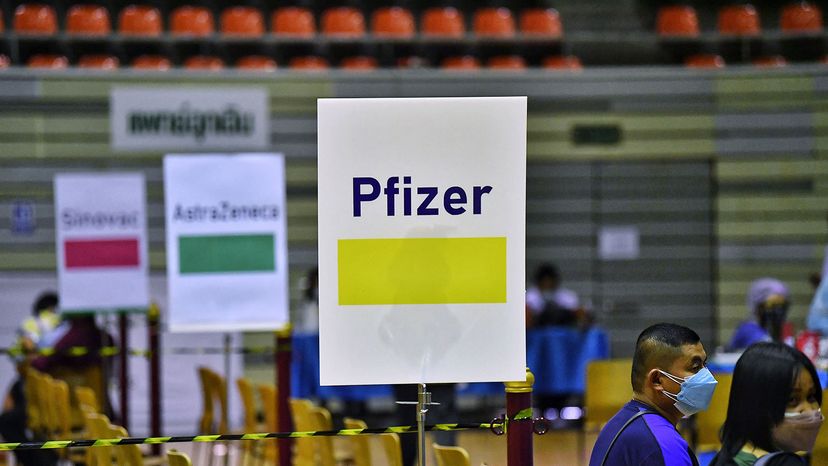Some people use antibody tests to determine whether they have protection from COVID-19. Experts say antibody or serology tests shouldn't be used for this purpose.
"A vaccinated person is very likely to get a negative result from a serology test, even if the [COVID] vaccine was successful and protective. That's because different serology tests detect antibodies to different parts of the virus," says the MD Anderson Cancer Center. "Some tests detect antibodies to the spike protein of the virus, which are produced in response to viral infection or the vaccine. Others detect antibodies to a different part of the virus called the nucleocapsid protein, which are produced in response to infection, but not by the current vaccines." So, a negative test doesn't necessarily mean that a vaccine has faded, nor a positive test mean that you have full immunity.
Further, a person could have lots of antibodies to the delta variant or the original strain, but be completely unprepared for omicron or future variants. COVID strains are "like a group of cousins," says Dr. William Schaffner, professor of infectious diseases at Vanderbilt University Medical Center (VUMC). "They're all part of the same family, they all have the same last name, but we know that each has their own individual characteristics and personality."
Several studies have shown that the effectiveness of the three most common vaccines in the U.S. (Pfizer, Moderna and Johnson & Johnson) declines over time, though their effectiveness is still currently over 50 percent, the level to which COVID vaccines had to get in order to secure approval from the Food and Drug Administration back in 2020, according to The New York Times. The general decline in effectiveness is why boosters are recommended by the CDC and others.
What if you contracted COVID-19? Do you still need to be immunized against it?
"One of the things that's been pretty remarkable with COVID is that the immunity that's generated from a natural infection is not always the same," says Dr. Kathryn Edwards, professor of pediatrics at VUMC. "We've really been shown over and over that natural immunity from an infection often doesn't provide long lasting protection.
"We don't know exactly how much antibody is needed to prevent an infection," she adds. With that said, it's important to get a COVID-19 booster as soon as you're eligible, even if you've been vaccinated earlier or contracted COVID-19.
